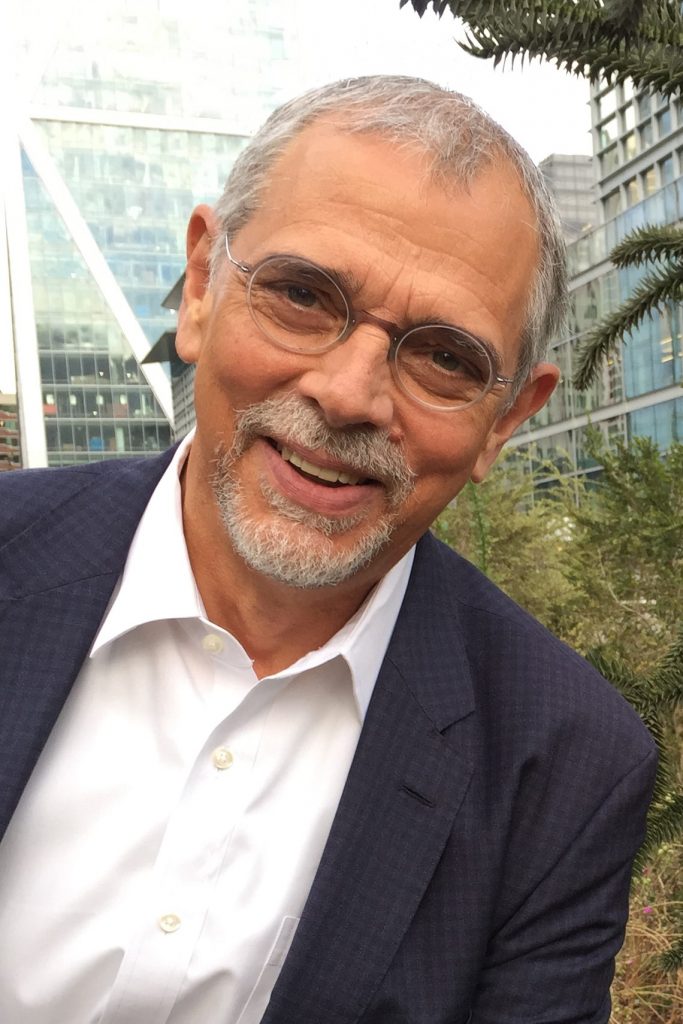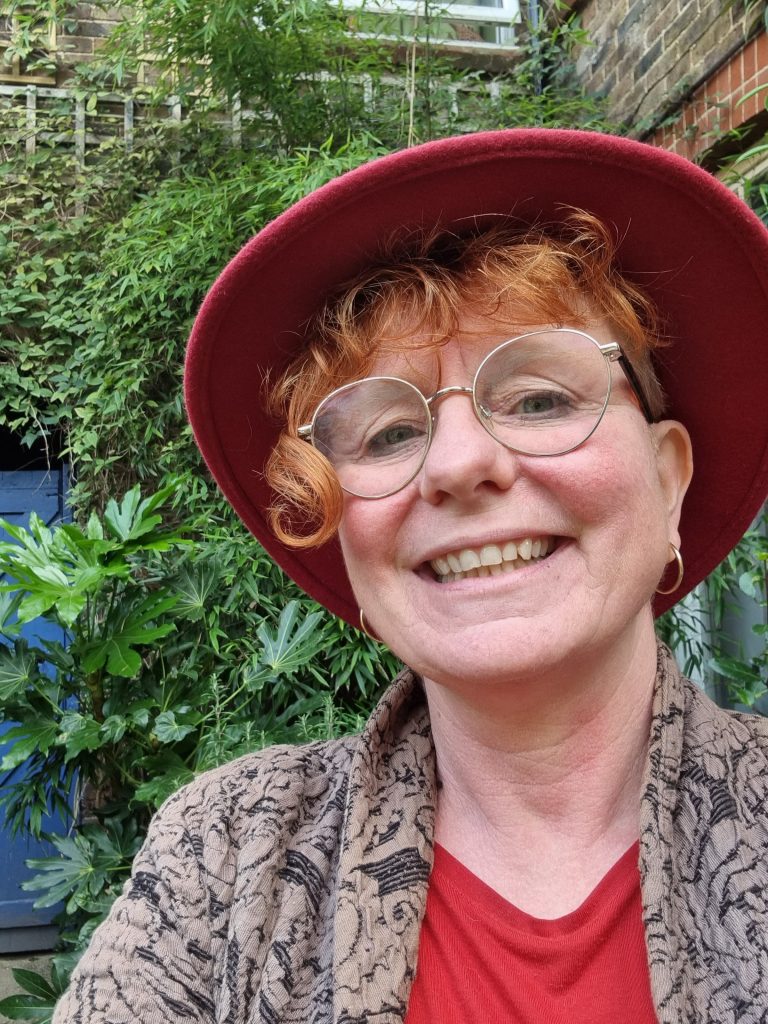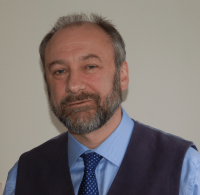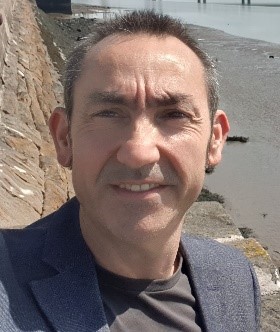Welcome to the new podcast series from the IHBC that raises awareness and understanding of how conservation philosophy and practice contributes towards meeting the challenge of climate change.
Episodes are being released throughout the UN Climate Change Conference 2021 in Glasgow - 'COP26' - and feature sectoral experts sharing their expertise, experience, and views on what’s being done now and what’s to come. All opinions are the contributors’ own and are not intended to be understood as the official position of the IHBC.
Anyone interested in these podcasts will find links to lots more at the IHBC@COP26 virtual ‘Conservation Helpdesk+’ programme’
Guests and Podcasts
Release 1 November 2021
Episode 1: ‘Climate and Conservation’ with Carl Elefante
Carl Elefante discusses why we need to start valuing all our existing buildings, the maths around reduced carbon emissions from retrofitting, and how heritage organisations hold the key to helping people around the world come together to meet the challenge of climate change.
Release 2 November 2021
Episode 2: ‘Climate and Conservation’ with Joanna Saady
Joanna Saady discusses designing retrofits, digging into the details of insulation, thermal mass, and natural materials, and why understanding the building and applying appropriate measures is so important.
Release 3 November 2021
Episode 3: ‘Climate and Conservation’ with Stephanie Phillips
Stephanie Phillips discusses all things deconstruction, including why it’s an optimal alternative to destruction, how it helps empower communities and the circular economy, and how we can look to the past to rediscover deconstruction skills.
Release 4 November 2021
Episode 4: ‘Climate and Conservation’ with Nigel Griffiths
Nigel Griffiths discusses recent heritage and climate policy and why EPC’s need a fundamental rethink, how practitioners and homeowners alike can understand their buildings and ensure planned improvements don’t go wrong, and how a broader policy aim of regenerating places is the right path to sustainability, health, and wellbeing.
Release 5 November 2021
Episode 5: ‘Climate and Conservation’ with John Edwards
John Edwards discusses why taking a risk-based approach to improving building elements, understanding traditional buildings and how they perform, and implementing a sophisticated quality regime are all crucial to getting retrofit right.
Release 8 November 2021
Episode 6: ‘Climate and Conservation’ with Adala Leeson & Douglas Phillips
Adala Leeson and Douglas Phillips discuss why understanding heritage values and carbon in the built environment is critical in transitioning to a lower-carbon economy, how to go about expressing these complex concepts to the public, and how the heritage sector must cooperate and collaborate with others to achieve success.
Release 9 November 2021
Episode 7: ‘Climate and Conservation’ with Lori Ferris
Lori Ferris discusses how to encourage carbon reduction strategies through design, how climate action planning can incentivise building reuse, and a new tool owners can use to see the carbon implications of prospective development plans.
Release 10 November 2021
Episode 8: ‘Climate and Conservation’ with Alan Forster
Dr Alan Forster discusses his wide-ranging research on conservation and sustainability, why maintenance and repair should be prioritised, and what higher education is contributing to our understanding of carbon in the historic built environment.
Release 11 November 2021
Episode 9: ‘Climate and Conservation’ with Dave Chetwyn
Dave Chetwyn discusses how good planning and urban design practice and policy, with lessons learned from historic places and considering the natural environment and local context, increase places’ sustainability and economic opportunity.
Release 12 November 2021
Episode 10: ‘Climate and Conservation’ with Crispin Edwards & Roy Lewis
Crispin Edwards and Roy Lewis discuss why conservation of the historic environment is inherently sustainable, the role of the conservation professional in achieving successful outcomes through a balanced approach, and how we might ensure those working on traditional and historic buildings have requisite skills and competencies.

Carl Elefante
Carl Elefante is an architect whose career is focused on existing buildings, who’s years of engagement in promoting the relevance and value of the architectural professional culminated in his serving as President of the American Institute of Architects in 2018. As author, speaker, advocate, and advisor, his energies are devoted to reshaping the built environment for healthy, equitable, and sustainable communities. His professional activities continue as Principal Emeritus at Quinn Evans Architects and Adjunct Professor at The Catholic University of America and the University of Maryland.

Joanna Saady
Joanna Saady is a Chartered Architect, has an MSc in Energy Efficient Building and a PG Certification in Conservation of the Historic Environment. She is also a Full Member of the Institute of Historic Building Conservation. Her firm, Ecotecture, delivers projects including house remodelling, large extensions/ retrofits, bespoke one off house designs, master planning and small estate planning, community projects and commercial offices. She performs a range of design solutions in traditional, historic, and contemporary design.

Stephanie Phillips
Stephanie Phillips is a Senior Specialist with the City of San Antonio Office of Historic Preservation, where she leads the Rehabber Club program and serves as a lead case manager for the City’s Historic and Design Review Commission (HDRC). She is the project manager for the City’s deconstruction & salvage policy initiative, which aims to maximize material salvage from older structures while achieving key sustainability and waste diversion goals. Her professional and extracurricular work operates at the intersection of heritage and sustainability, specifically the advancement of circular economy policy and the development of equitable climate resiliency strategies rooted in place and traditional knowledge. Stephanie is a 2019 POCACITO (Post-Carbon Cities of Tomorrow) Fellow and a 2021 recipient of the Harrison Goodall Preservation Fellowship. She holds a MS in Historic Preservation from the University of Texas at Austin and a BS in Interior Architecture from the University of Wisconsin-Madison.

Nigel Griffiths
Nigel Griffiths was the Director of the STBA, the Sustainable Traditional Buildings Alliance, from 2013 to 2021. Prior to this he was a consultant in energy efficiency policy development for UK government, overseas governments, and many other agencies. He is the author of several books, and lectures widely on sustainable buildings; he is the sustainability adviser to the Build-it self-build group, develops retrofit plans for traditional buildings & portfolios, and audits renewable heat installations on behalf of Ofgem. He continues to work on some STBA projects and provides policy advice.

John Edwards
John Edwards is an all-round Chartered construction and property professional and Chartered Environmentalist specialising in climate change and retrofit, property and construction related research and business planning, quality management, and building conservation. He has worked at Cadw of the Welsh Government as Assistant Director and at English Heritage, holds a professorship at the University of Wales Trinity St David, and authored many publications, reports, certification / training schemes, and qualifications including guidance and standards. This included leading on the development of BS7913, author of IHBC retrofit guidance and co-authoring BSI’s PAS2030, PAS2035 and PAS2038 for retrofitting buildings. He developed with CITB’s National Construction College the first UK retrofit course that delivers a qualification, a course which he still delivers today. John is currently a Director of Edwards Hart consultants.

Adala Leeson & Douglas Phillips
Adala Leeson is Head of Socio-economic analysis and Evaluation at Historic England. She leads Historic England’s social and economic research and the production of Heritage Counts – the annual audit of the Historic Environment. Adala is part of the emerging DCMS Culture and Heritage Capital Steering and Working Groups and a member of the Climate Heritage Network. Prior to joining Historic England, Adala worked as an Associate Economic Consultant for 10 years, working with public and private clients on planning and regeneration projects. She has also worked in academia as a researcher at the London School of Economics.

Douglas Phillips is Senior Environmental Analyst at Historic England. He has helped lead on the organisation’s research interests in carbon and energy, particularly around the embodied and operational emissions of retrofit. In addition to his MSc degrees in Sustainable Energy and Environment (Cardiff University) and Low Carbon Technologies (University of Leeds), he completed his PhD in 2018. With his background in engineering, before moving to Historic England Douglas worked in strategic consulting, specialising in the circular economy and the bioenergy sector

Lori Ferris
Lori Ferris is the Director of Sustainability and Climate Action at Goody Clancy and a champion for preservation of built heritage as a key measure towards meeting climate mitigation goals. Her professional practice as an architect, structural engineer, and conservator combines broad policy development with deep technical insights to promote a culturally and environmentally sustainable world through design. She is active locally and globally through her roles on the American Institute of Architects Committee on the Environment Leadership Group, the ICOMOS International Scientific Committee on Energy, Sustainability and Climate Change, and as a Co-Chair of the Zero Net Carbon Collaboration for Existing and Historic Buildings.

Alan Forster
Dr Alan Forster is Associate Professor within the Royal Academy of Engineering Centre of Excellence in Sustainable Urban Design, Heriot-Watt University. His research focuses on themes that investigate, traditional and low carbon building materials; building resilience to climate change; maintenance and fabric repair for historic buildings; Heritage Building Information Modelling; and Construction and conservation education. He has published over 80 works and has attained research grants (£1.14M) from an array of RCUK funding councils. He is a Building Surveyor by profession and has a deep interest in core technical aspects of practice. He was fortunate enough to be awarded the SPAB scholarship in 2001; the visiting Research Fellowship at the University of Bath in 2011, and the Royal Society of Edinburgh visiting Research Fellowship in 2014, at the Academy of Sciences for the Czech Republic. Professionally, he is a Fellow of the Chartered Institute of Builders; a member of the Institute of Historic Building Conservation and is an associate member of the Royal Institution of Chartered Surveyors. He was awarded the 2010 Graduates Teaching Prize for lecturer of the year and the 2010. Beyond work, he spends much of his time, co-parenting his son, listening to music, playing the guitar, running, and socialising.

Dave Chetwyn
Dave Chetwyn is Managing Director/Partner of Urban Vision Enterprise CIC and a Director/Partner of D2H Land Planning Development. He is also a High Street Task Force Expert, Chair of the Board of the National Planning Forum, an Associate of the Consultation Institute, and a Design Council Expert. Former roles include Head of Planning Aid England, Chair of the Institute of Historic Building Conservation and Chair of the Historic Towns Forum. He has authored numerous guides to planning, development, heritage and regeneration and drafted parts of BS7913.

Crispin Edwards & Roy Lewis
Crispin Edwards is a listing adviser with Historic England, assessing heritage assets for inclusion on the National Heritage List for England principally under the regimes of listing, scheduling and registration. After graduating in Tourism Studies, Crispin worked for the Heritage Trust for the North West establishing Slaidburn Heritage Centre in Lancashire in 1999. He then worked for English Heritage and gained distinction in a Postgraduate Certificate in the Archaeology of Standing Buildings before becoming Stockport’s Conservation Officer. He has been a Full Member of the IHBC since 2012, represents the North West branch on the national Board, and is the vice-chair for the North West branch. In 2020 he gained the NOCN Level 3 award in Energy Efficiency Measures for Older and Traditional Buildings, and he convenes the IHBC’s Green Panel, which provides the Policy Committee with comments and advice on sustainability matters.

Roy Lewis is a chartered town planner with a specialism in urban design and conservation of the historic environment. He has forty years’ professional experience of planning and conservation work in the public, private, and educational sectors, and has been a full member of the Royal Town Planning Institute (RTPI) since 1980 and the Institute of Historic Building Conservation (IHBC) since its formation in 1997. He has a masters degree in architectural conservation, sits on the East Midlands Branch Committee of the IHBC, and is the institute’s Policy Secretary at national level. Recently retired from full-time planning work as a director and partner of Grover Lewis Associates Limited, he continues to take on a limited number of commissions of interest including in the field of appeal work and court-actions related to town planning cases, where he has experience of acting as an expert witness.
Thanks to Michael Netter IHBC Professional Services Officer for coordinating the podcasts and to all our speakers and partners. Music by Gaz Hunter.
